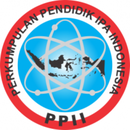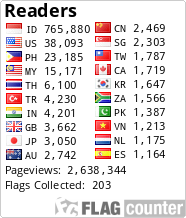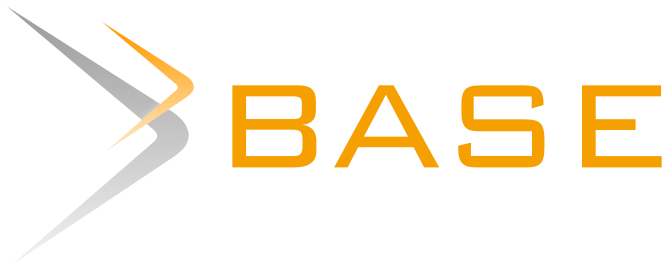Profile of Students’ Science Process Skills on Conventional Biotechnology Material
H. K. Surtikanti, Universitas Pendidikan Indonesia, Indonesia
K. Kusnadi, Universitas Pendidikan Indonesia, Indonesia
N. S. Putra, Universitas Pendidikan Indonesia, Indonesia
Abstract
The study aimed to find out students’ science process skill profile in grade XII. The research was conducted at SMAN 1 Tanah Putih Tanjung Melawan, Riau. The study was conducted by providing tests to students consisting of 10 questions on the scope of conventional biotechnology materials. This test used to measure students' science process skills, namely the ability to observe, communicate, interpret, propose hypotheses, apply concepts, ask questions, predict, use tools/materials, plan experiments, and classify. The research sample consisted of 70 students. The reliability value of the instrument was 0.948 of high category. It was obtained that the science process skill of students was categorized as medium with a percentage of 39.3%. The percentage of observing, communicating, interpreting, formulating hypotheses, applying concepts, asking questions, predicting, using tools/materials, planning experiments, and classifying abilities were 43.2%, 35.4%, 39.3%, 28.2%, 26.8%, 36.8%, 46.4%, 49.6%, 37.1%, and 50%, respectively. Some of the science process skill aspects showed a low category, namely in the aspects of formulating hypotheses and applying concepts. Other aspects showed medium category and almost all aspects were below 50%. The teacher’s role was very decisive as the main actor in improving students’ science process skills.
Keywords
Full Text:
PDFReferences
Adiningsih, M. D., Karyasa, I. W., & Muderawan, I. W. (2019). Profil Keterampilan Proses Sains Siswa Dalam Praktikum Titrasi Asam Basa. Jurnal Pendidikan Kimia Indonesia, 3 (2), 94-102.
Al Rabadi, I. G, Al Momani, H.O., & Al Rabadi, K. I. (2013). The effect of using process approach on science achievement and scientific attitudes among Jordanian basic stage students. Journal of Education and Pratice, 4, 136- 151.
Anam, R. S., (2014). Analisis Keterampilan Proses sains Siswa Madrasah Ibtidaiyah di Kabupaten Sumedang. Prosiding Konfrensi Pendidikan Dasar SPs UPI 2014: Pendidikan Berkualitas Dalam Membangun Generasi Emas 2045, 274- 282.
Andiasari, L. (2015). Penggunaan model inquiry dengan metode eksperimen dalam pembelajaran IPA di SMPN 10 Probolinggo. Jurnal Kebijakan dan Pengembangan Pendidikan, 3(1).
Ariani, M., Hamid, A., & Leny, L. (2015). Meningkatkan keterampilan proses sains dan hasil belajar siswa pada materi koloid dengan model inkuiri terbimbing (guided inquiry) pada siswa kelas xi ipa 1 SMA Negeri 11 Banjarmasin. Quantum: Jurnal Inovasi Pendidikan Sains, 6(1).
Atmojo, S. E. (2012). Profil keterampilan proses sains dan apresiasi siswa terhadap profesi pengrajin tempe dalam pembelajaran ipa berpendekatan etnosains. Jurnal Pendidikan IPA Indonesia, 1(2).
Bell, S. (2010). Project-based learning for the 21st century: Skills for the future. The clearing house, 83 (2), 39-43.
Dahar, R. W. (2011). Teori-Teori belajar. Jakarta: Erlangga.
Delismar, D., Asyhar, R., & Hariyadi, B. (2013). Peningkatan kreativitas dan keterampilan proses sains siswa melalui penerapan model Group Investigation. Edu-Sains: Jurnal Pendidikan Matematika dan Ilmu Pengetahuan Alam, 2(1).
Ergül, R., Şımşeklı, Y., Çaliş, S., Özdılek, Z., Göçmençelebı, Ş., & Şanli, M. (2011). The effects of inquiry-based science teaching on elementary school students'science process skills and science attitudes. Bulgarian Journal of Science & Education Policy, 5(1).
Foulds, W.,& Rowe, J. (1996). The enhancement of science process skills in primary teacher education students. Australian Journal of Teacher Education, 21(1), 8-11.
Fraenkel, J.R., Wallen, N.E., & Hyun, H.H. (2012). How To Design and Evaluate Research in Education. In McGraw-Hill.
Germann, P. J. (1994). Testing a model of science process skills acquisition: An interaction with parents' education, preferred language, gender, science attitude, cognitive development, academic ability, and biology knowledge. Journal of Research in Science Teaching, 31(7), 749-783.
Gürses, A., Çetinkaya, S., Doğar, Ç., & Şahin, E. (2015).
Determination of levels of use of basic process skills of high school students. Procedia-Social and Behavioral Sciences, 191, 644-650.
Handayani, G., Adisyahputra, A., & Indrayanti, R. (2018). Correlation between integrated science process skills, and ability to read comprehension to scientific literacy in biology teachers students. Biosfer: Jurnal Pendidikan Biologi, 11(1), 22-32.
Hasyim, F. (2018). Mengukur kemampuan berpikir analitis dan keterampilan proses sains mahasiswa calon guru fisika STKIP Al Hikmah Surabaya. JIPVA (Jurnal Pendidikan IPA Veteran), 2(1), 80-89.
Janah, M. C., Widodo, A. T., & Kasmui, K. (2018). Pengaruh model problem based learning terhadap hasil belajar dan keterampilan proses sains. Jurnal Inovasi Pendidikan Kimia, 12(1).
Jumania, P. A. N., & Irawan, B. (2019). Profil Keterampilan Proses Sains Siswa Dalam Pembelajaran IPA Kelas Viii Di SMP Negeri 8 Tanjungpinang. Pedagogi Hayati, 3(1), 8-13.
Mahmudah, I. R., Makiyah, Y. S., & Sulistyaningsih, D. (2019). Profil keterampilan proses sains (KPS) siswa SMA di Kota Bandung. Diffraction, 1(1).
Nugraha, A. J., Suyitno, H., & Susilaningsih, E. (2017). Analisis kemampuan berpikir kritis ditinjau dari keterampilan proses sains dan motivasi belajar melalui model pbl. Journal of Primary Education, 6(1), 35-43.
Ongowo, O. R., & Indoshi, C.F. (2013). Science process skills in the Kenya certificate of secondary education biology practical examinations. Creative Education 2013, 4(11), 713-717.
Özgelen, S. (2012). Students’ science process skills within a cognitive domain framework. Eurasia Journal of Mathematics, Science and Technology Education, 8(4), 283-292.
Purwanto, N. (2013). Prinsip-Prinsip Evaluasi Pengajaran. In Bandung: PT Remaja Rosdakarya.
Putra, N. S., Sukma, H. N., & Setiawan, H. (2021). Level of Environmental Literacy of Students and School Community in Green Open Space: Is There any Difference between Both of Them?. Jurnal Pendidikan IPA Indonesia, 10(4), 627-634.
Rahman, A. (2017). Profil keterampilan proses sains dan sikap ilmiah siswa di SMP Satu Atap Pulau Tunda. School Education Journal PGSD FIP Unimed, 7(1), 1-7.
Rauf, R. (2013). Inculcation of science process skills in a science classroom. Asian Social Science, 9 (8).
Rufaida, F. A. and Mulyaningrum E.R. (2016). Pengaruh Pemanfaatan Video Eksplorasi Ekosistem Mangrove dalam Pembelajaran Materi Ekosistem Melalui Lesson Study terhadap Keterampilan Proses Sains dan Keterampilan Pemecahan Masalah. In mathematics and sciences forum II 2016.
Sagala and Syaiful. (2010). Konsep dan Makna Pembelajaran. Bandung:Alfabeta.
Subali, B. (2011). Pengukuran kreativitas keterampilan proses sains dalam konteks assessment for learning. Jurnal Cakrawala Pendidikan, 1(1).
Sukarno, S., & Hamidah, I. (2013). The profile of science process skill (SPS) student at secondary high school (case study in Jambi). International Journal of Scientific Engineering and Research (IJSER), 1(1), 79-83.
Sultan, A. D. (2013). Penerapan model pembelajaran kooperatif dengan pendekatan penemuan terbimbing untuk meningkatkan keterampilan proses sains siswa. Jurnal Pendidikan Fisika, 1(3), 202-208.
Temiz, B. K., Taşar, M. F., & Tan, M. (2006). Development and validation of a multiple format test of science process skills. International Education Journal, 7(7), 1007-1027.
Wardani, S., Widodo, A. T., & Priyani, N. E. (2009). Peningkatan hasil belajar siswa melalui pendekatan keterampilan proses sains berorientasi problem-based instruction. Jurnal Inovasi Pendidikan Kimia, 3(1).
Wijanarko, A. G., Supardi, K. I., & Marwoto, P. (2017). Keefektifan model project based learning terbimbing untuk meningkatkan keterampilan proses sains dan hasil belajar IPA. Journal of Primary Education, 6(2), 120-125.
Zakiyah, N. (2011). Pengaruh pendekatan inkuiri terstruktur terhadap keterampilan proses sains siswa pada konsep sistem pernapasan manusia. Skripsi, tidak dipublikasikan. Universitas Islam Negeri Syarif Hidayatullah
Zeidan, A. H., & Jayosi, M. R. (2015). Science Process Skills and Attitudes toward Science among Palestinian Secondary School Students. World journal of Education, 5(1), 13-24.
DOI: https://doi.org/10.21831/jser.v6i2.51083
Refbacks
- There are currently no refbacks.

This work is licensed under a Creative Commons Attribution-ShareAlike 4.0 International License.
Based on a work at https://journal.uny.ac.id/index.php/jser/index
Accepted and published papers will be freely accessed in this website and the following abstracting & indexing databases:
This work is licensed under a Creative Commons Attribution-ShareAlike 4.0 International License.








_-_Copy1.jpg)
.jpg)




